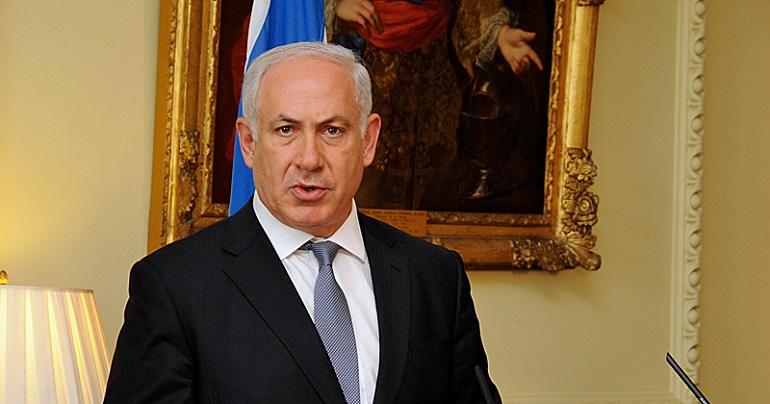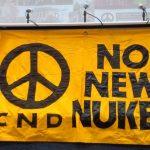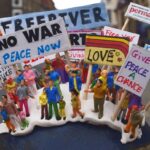Is there a political solution to halt genocide in the Nuba Mountains, Sudan?
Guest post by Tim Flatman, who has recently returned from South Sudan.
Is genocide always an irrational action carried out by a despot who has lost his grasp on reality, or can it be a pragmatic policy exacted to meet the self-interest of a ruling elite? Can it co-exist with rebellion or must the targets of genocide have one, unconfused, victim identity? Can the perpetrators of genocide be negotiated with, how do we know when they are negotiating seriously and what kinds of pressure might they respond to?

The Government of Sudan stands accused of attempting two simultaneous genocides in the last month – a record even for the likes of Bashir, Nafie and Harun. In Abyei it displaced 150,000 Dinka Ngok people from their homeland and left them for dead without shelter, food or clean water, subject to continued intimidation and threats. The invasion of Abyei united a complex, overlapping set of interests within the National Congress Party headed by Omar Al-Bashir, which I have explored elsewhere. But one of the hopes of the regime was undoubtedly that the residents of Abyei would either die or be forced to flee far enough South that they lost their claim to the land and the right of self-determination they had been promised. The Government of Sudan tried, but largely failed, to repopulate the area. Most civilians from Northern tribes refused to repopulate Abyei town, recognizing the NCP’s attempt to use them as pawns and locate them in a potential war-zone and refusing to change the pattern of annual migrations and put their cattle at risk to satisfy the NCP.
Recognising the nature of this deadly game of chess, the Dinka Ngok residents of Abyei stood firm, with the eventual assistance of the international community to provide food, some temporary shelters and medicine. Tens of thousands of those who initially fled further than Agok (a village on the edge of Abyei area, below the river Kiir which tanks did not cross) returned there despite circling Antonovs and occasional attacks by Sudan Armed Forces. It became clear that the policy of genocide would not succeed, and that continued occupation would have knock-on consequences for the regime. This week, the NCP signed a deal promising to withdraw troops, (replaced by neutral Ethiopian peacekeepers), and allow residents to return. Residents are skeptical over whether it will be properly implemented, whether Ethiopian peacekeepers have the capacity to prevent future incursions by Northern militias, and the deal is a temporary interim agreement which does not resolve the fundamental question of the status of Abyei. Without giving the permanent residents of Abyei the self-determination they have been promised, the question is not if these events will be repeated but when. Nonetheless, the deal, if implemented properly, is to be welcomed – so long as the world doesn’t assume it has fixed the situation and take its eyes off Abyei.
The genocide in the Nuba Mountains is if anything more difficult to halt. The Nuba people are a larger group and have better networks with the outside world than the Dinka Ngok, both through the Church (even though a smaller proportion of the Nuba are Christian than the Dinka Ngok) and through diaspora networks. There is also better infrastructure in the area for reporting attacks. As a consequence, reports of the nature of the violence have reached the outside world more quickly and in a more comprehensive manner. We have heard about door-to-door executions of anyone considered ethnically Nuba, Christian, or sympathetic to the SPLM in the recent elections. Tens of thousands of people have fled towards villages as they are being bombed, on the assumption they are safer than the areas Sudan Armed Forces are in control of. The Government of Sudan has both threatened and attacked the UN, parts of whom have been accused of aiding and abetting the genocide, and even of raping Nuba women themselves. We have heard about thousands of bodies being pushed into mass graves, about torture and rape used as political weapons, about instruction given to local militia members to treat Nuba like “rubbish” and “sweep them away”. The President of Sudan boasts that “if anyone looks our way, we will stab his eyes” and amasses forces with presumed similar intent in the neighbouring Blue Nile region.
Like in Abyei, there are a complex set of overlapping interests united by the implementation of a policy of genocide, which occasion these attacks. But although many of these interests are rooted in similar contexts, the immediate causes are very different. In the Nuba Mountains, the immediate cause is the SAF attempt to implement a military solution to the problem of how to treat former rebel fighters in the Joint Integrated Units. The JIUs united former rebels and Sudan Army units under joint command, but after South Sudan secedes they are supposed to be dissolved. The Government of Sudan pre-empted this dissolution by demanding former rebels in JIUs in the Nuba Mountains lay down their arms or go to the South. The trouble was these fighters were indigenous to the Nuba Mountains and Blue Nile regions in the North, fighting alongside the South during the war not as part of it. The Government of Sudan refused to discuss a political solution and instead tried to resolve the situation by killing the former rebels until they laid down their arms. In doing so, they provoked a rebellion and used genocide as a counter-revolutionary tactic to put down the rebellion and weaken political opposition in an area which could become the political centre of opposition to the government in Sudan once the South secedes.
The Government of Sudan accuses leaders of the SPLM Northern Sector (now severed from the SPLM in South Sudan and operating as an independent party in the North) of treason, says there are abuses on either side and that violence should be classified as fighting rather than genocide. But unless we assume the perpetrators of genocide are evil and irrational, and the victims are helpless and passive, there is no reason why genocide and rebellion cannot co-exist. Yet the rebellion is not strong enough to win outright victory, and with an estimated 75,000 former rebels in South Kordofan (which includes the Nuba Mountains) and Blue Nile states, the attempt to wipe out the former rebels and the accompanying genocide could continue indefinitely.
A political solution is needed, but as things stand genocide is a more pragmatic option for the NCP regime than negotiation. We have seen in the past that the NCP pursues genocide when it is the most pragmatic policy to secure its interests, but negotiates seriously when the facts on the ground change. However, negotiation is not in itself a sign of serious intent to change its policy, since the NCP has also used negotiations (for example, in the case of the Darfur Peace Agreement, or the political charter between the Sudan Government and SPLA United) to weaken and divide rebel movements and further the chances of a total military victory. Only when rebel movements are united, backed by international pressure and it is clear that a military victory is impossible are they ready to concede anything in the name of ensuring continued NCP political control, and maintaining the territorial integrity and economic viability of northern Sudan.
Some are beginning to recognize this and call for a “rebalancing” to force the Government of Sudan to come to the negotiating table in earnest. Roger Winter, the former US Special Envoy to Sudan, called on the US to “Take a military action against a Khartoum military target now” to “strengthen the SPLA in meaningful ways as a deterrent against Khartoum aggression, provocation and attacks against civilians”. Backing unilateral US military intervention is not likely to be a popular option on the British political left, even if it might have the welcome outcome Winter hopes for. It also seems unlikely the US would take this action. The situation for civilians is far more serious in the Nuba Mountains than in Libya, but US interests are not threatened in the same way. There would of course be adverse outcomes to unilateral direct military intervention by the US too, including allowing the NCP to paint opposition within Sudan as driven and manipulated by the United States and hence weakening opposition in Khartoum and other regions in the North. Winter might argue that trade-off is worth it if it stops genocide and forces the NCP to negotiate seriously.
The Enough project has made a call for the US to provide air defence capabilities to the Government of South Sudan to “deter further attacks and defend civilians”. Use of these capabilities would be conditional on monitoring and continued improvement to improve the human rights record of the SPLA as it moves from a guerilla army into a conventional army. This would allow the South to shoot down SAF planes operating in its territory, preventing attacks like the recent bombing in Unity state, and most likely strengthening its hand in ensuring the recent agreement on Abyei is actually implemented. However, it would do little to stop the genocide in the Nuba Mountains right now. The South could hardly shoot down planes in the North, and no-one thinks these capabilities would be provided before July 9th, anyhow. Of course, there are also concerns that the US would use its leverage for the higher priority of land grabs and oil rights rather than improving the human rights record of the SPLA. Nonetheless, this proposal is worthy of support – South Sudan needs these capabilities to defend citizens and stop the NCP terrorizing them to barter concessions on resource-sharing and it is better they get high-quality systems capable of distinguishing between civilian and military planes than a cheap system through nefarious channels – just on the condition that everyone understands it is not a solution to the crisis in South Kordofan in itself. Although some Sudanese diaspora hope the SPLA could smuggle some of this equipment to the Nuba Mountains, this seems unrealistic especially with the kind of monitoring Enough advocate. (To be fair, Enough evidently do understand this.)
Where does this leave us? Is there any kind of action that is acceptable and likely to be effective in forcing the NCP to re-evaluate? The Nuba people themselves, and Sudanese diaspora from both the Nuba Mountains and other regions of Sudan, advocate a No-Fly Zone. INGOs would likely be resolutely against this, as it would sabotage their negotiations to establish humanitarian supply lines in the affected areas. (We should, however, question whether their interests are the same as the people they are helping when the people they are helping don’t share their opinion, and argue that the Government of Sudan does not negotiate seriously and will block these supply lines whenever it feels like it, just as it closed the border between the North and South during the Abyei crisis in an attempt to starve the displaced.) A No-Fly Zone would allow rebels to secure their control over villages they formerly controlled during the war and are largely in control of now, providing safe havens for those who wanted to flee without the additional risk of bombing. This in itself would force the NCP to row back on its insistence on wiping out the rebels and force it to reconsider some kind of continuation of Joint Integrated Units under another name, or face a semi-permanent loss of control of areas of its territory. But the sticking point is the UNSC is unlikely to approve it. China is already demanding a lot of Bashir in order to ensure relative peace between North and South and the necessary stability to extract oil and other resources. It is likely they would see this as a step too far.

Nonetheless, the placards displayed by Nuba exiles at the recent demonstrations they called in London are powerful. There is no perfect solution, but could some form of unilateral weapons support be offered to rebels in the Nuba mountains? They are, after all, experienced rebels with a human rights record far superior to parts of the SPLA in the South. So too, they are under a political leadership which has wider support within the area and the wider North than just the SPLA. The Sudan Communist Party and even some of the traditional Islamic parties tacitly supported Abdul Aziz’s election campaign earlier this year. The SPLA in South Kordofan is run by secularists who hold firm to the original vision of the SPLM manifesto, quietly supported the unity of Sudan rather than separation and whose vision and clarity is widely respected. Is there a way of directing, even if through back channels, unilateral support for rebels to shoot down military planes themselves, provide safe havens for civilians to avoid slaughter, strengthen their bargaining position and force the NCP to negotiate in earnest? Let’s at least have a debate about this – the victims of genocide in South Kordofan and those courageously standing up to the Government of Sudan deserve that at the very least, and they deserve alternative solutions from those who reject this out of hand.




Genocide is one of the worst things that humanity must try to eliminate. There is no excuse for practicing annihilation of any race however much it is opposed to you. The issue of Nubi Mountains is very multifaceted. It has a lot of designations which needs a true and genuine analyst.
Let all of us draw together and denounce genocide with all the amenities we can wherever it is being practicedr whatever the causes.
We should never destroy what we can’t put in place.
Hi Lilly
Thanks for commenting.
I agree with what you say about the arms trade in principle. Of course, action to stop the arms trade is not going to help people in the Nuba Mountains right now, or correct the imbalance that allow the North to enjoy superiority especially in the air over Southern forces.
Where have the weapons come from? China, Russia, Belarus, Iran, Saudi Arabia and Egypt, primarily – although I’m sure there are others I’ve missed out.
There is no direct link between Western action in Libya and what’s going on in Sudan, but plenty of indirect links. Gaddafi and Bashir have had a chequered history and often sponsored rebel forces which operate in each other’s territory. This is more connected to regional power struggles than it is to imperialism. The leader of JEM is currently stuck in Libya with no easy way back to Darfur. However I wouldn’t go so far to say that the West would not want to weaken Bashir in case it adversely affected the war in Libya.
Does that help? Happy to answer more questions if you’ve got them.
A very difficult situation, although it made distressing reading I applaud you for writing and researching it. As someone who is interested in understanding the situation but has little grasp of the links between countries, I wondered whether the UK, US and French involvement in Libya had any bearing on what is happening in Sudan, and where the weapons are coming from. As an ordinary person it seems that the only way to a more peaceful world is to stop the manufacture of weapons and the trade that goes with it, the more the world is swamped in military hardware the more of a vicious cycle of wars our world gets locked into, and the less chance people have of feeling settled and resuming normal lives. The crimes that are committed using new technology e.g. drones (now supplied by Israel to attack Libya) are likened to playing a video game, where people can be killed with the click of a mouse, disconnected from the terrible devasation of their actions. There is something indescribably awful when people in authority choose to ignore the suffering caused by their decisions to use such weapons, or worse dress it up as ‘humanitarian – protecting lives’etc. The facts appear to be bearing out what an article on wikileaks said many, many months ago. The US and its allies were going to ensure the middle east and other areas became locked in civil war. There must be more open discussion on these matters.